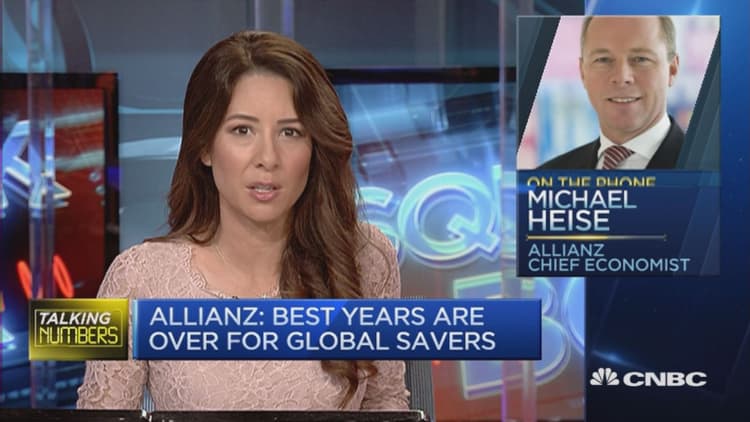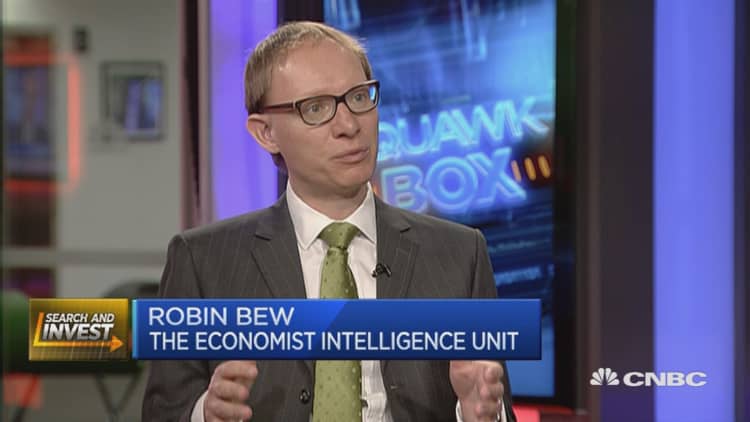
Critics bemoaning the inefficiency of global monetary policy now have fresh ammunition under their belts.
Allianz's latest Global Wealth Report revealed that global financial assets of private households grew just 4.9 percent in 2015, slowing dramatically from recent years. The Munich-based company surveyed households in more than 50 countries and released the results on Wednesday.
From 2011 to 2014, savers enjoyed average asset growth of 9 percent, the report stated, nearly double 2015's reading, while 2008-2014 saw a cumulative 61 percent expansion.
In the years following the global financial crisis, the world's central banks flooded markets with cash that pushed asset prices higher, Allianz explained. But 2015's results indicate that trend is fast disappearing.
"Obviously, extreme monetary policy is losing its impact even on asset prices. As a consequence, an important driver for asset growth no longer exists," explained Michael Heise, Allianz's chief economist. "For savers, the outlook is not rosy."
Securities were the best performing asset class, growing 6.1 percent in 2015. Insurance and pension funds, however, saw the slowest growth at 3.3 percent as "the scars left by the on-going low interest rate policy become increasingly visible," the report said.
Allianz isn't alone in its conclusion; market players have long warned that monetary stimulus in the form of quantitative easing has failed not just in increasing asset prices, but has had a limited impact on bank lending, inflation, and global economic growth as well.
"Without price increases to offset the lack of interest income, the years of plenty would appear to be over as far as asset growth is concerned. So it is high time for things to get back to normal," Allianz's report stated.

By region, emerging markets (EMs) across Latin America, Eastern Europe and Asia excluding Japan accounted for over 21 percent of global gross financial assets last year.
Their outperformance can be partly attributed to a broader distribution of global wealth. In countries such as Turkey, Thailand and Brazil, the share of riches attributable to the middle class increased alongside an overall rise in the size of the sector, the report found.
Asia ex-Japan was a particularly bright spot.
"Of the total global financial assets of 155 trillion euros, Asia ex-Japan accounted for 18.5 percent in 2015; this not only means that the proportion of assets held by this region has more than trebled since 2000 but also that the region's share now far outstrips that of the eurozone's 14.2 percent."
For 2015, Asia ex-Japan recorded growth just shy of 15 percent, well above Western Europe's 3.2 percent and North America's 2.6 percent.

